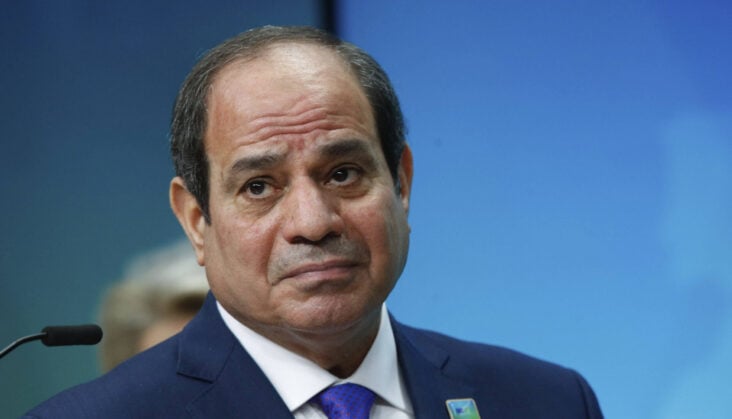
Egypt’s year-on-year inflation increased to 35.7% in June versus 32.7% in May while core inflation, which excludes fuel and some food items, also climbed to a record of 41%. The soaring consumer prices further compound the financial misery of the North African country and limit its options.
Egyptian President Abdel Fattah al-Sisi had already said in June that further devaluation of the pound could affect national security and the well-being of the country’s people. With energy and food prices accounting for about 38% of the consumer price index, the June inflation level is likely to heighten his concerns.
Deteriorating sovereign debt metrics mean Sisi’s options are narrowing. Egypt has “all the features of a distressed sovereignâ€, according to research from Evghenia Sleptsova at Oxford Economics in May.Â
Government debt stands at 91% of GDP, with reserves covering only 2.9 months of imports and 90% of short-term debt. The result is that the country’s risk score has increased the most among sovereigns followed by Oxford Economics, rising from 5.7 to 6.1, consistent with an 18% probability of default in the next three years.
The baseline view at Oxford Economics is that Egypt won’t default this year and will continue to be supported by the IMF.
But the significant annual risk of default isn’t decreasing even if a default is avoided in a particular year: if Egypt sticks to its current policy settings, the question is not when, but in which year, it will default.
The most populous Arab country has become increasingly reliant on IMF support, as well as that from Gulf countries, says Callee Davis, an economist at Oxford Economics.
But, she argues, Saudi Arabia and the United Arab Emirates have become reluctant to keep stumping up with no strings attached. “They are tired of giving Egypt money and want something in return†including a devaluation to allow them to invest in the country at a favorable currency point, she says.
The current state of the economy makes it unlikely that purely financial assets will perform well enough to keep Egypt’s Gulf lenders happy. The business environment would have to improve “dramatically†to make that realistic, Davis says. That means Gulf pressure will build on Egypt to part with strategic assets, she adds.
‘Distress territory’
Critics such as Robert Springborg, an academic at Canada’s Simon Fraser University, have argued that Sisi’s political economy is “unusual, if not unique†in that it requires levels of resources that are disconnected from the economy’s ability to provide them.
Sisi’s Egypt, writes Springborg, acts as if it were a rentier state financed by hydrocarbon exports, such as Saudi Arabia, or an exporter of manufactured products with a favorable trade balance, such as China.
Egypt has no prospect of becoming either. Sisi has “tried to build a rentier state without rents†and has to rely on credit and squeeze domestic consumption of public goods, Springborg says.
Yields on 10-year Egyptian bonds of around 16% indicate that the sovereign is in “distress territory,†says Thomas Gillet, an analyst at Scope Ratings in Paris.
Scope currently rates Egypt’s local and foreign currency debt at ‘B’ with a negative outlook. The risks for Egypt are “skewed to the downside†in the next 12 to 18 months, Gillet says.
Devaluation of the pound is necessary to move ahead with privatization plans, as potential investors “need the pound to get closer to its market-clearing levelâ€, Gillet says.Â
In the absence of devaluation, he sees the risk of a Nigerian naira scenario with a large gap between official and parallel rates being sustained over the long term. The size of the gap from the current official rate of about 31 pounds to the US dollar is shown by the forward rate of 40 to the dollar, he says. “This is the gap they need to bridge.â€
Bite the bullet
Medium and long-term public and publicly guaranteed external debt service amounts to $16bn in 2023 and 2024, about 47% of gross international reserves, according to research from Scope.
“Egypt’s ability to meet financing needs is contingent on reform implementation and net foreign capital inflows,†according to the firm’s research.
Gillet sees some progress in the shape of draft legislation to remove tax exemptions for state-owned enterprises (SOEs). That will bring SOE tax treatment closer to that for the private sector, he says.
But privatisation is proceeding more slowly than the IMF expected when it agreed to a $3bn financing facility last December, he adds. Despite the inflationary impact, Davis at Oxford Economics sees Egypt’s best course as a devaluation in 2023. “If they don’t do it this year, they are allowing external pressures to build and delaying the inevitable.â€
She sees devaluation as unavoidable in the next 12 months. “It’s just a question of time.â€



